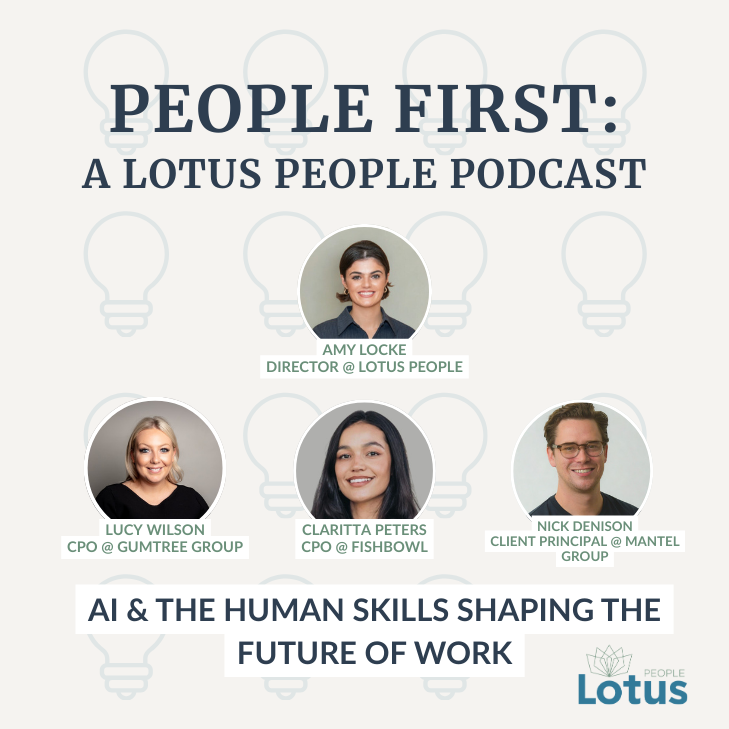Diversity, Equity & Inclusion (DEI) refers to the policies and practices aimed at creating a fair, welcoming, and respectful work environment where every individual has equal opportunities. A strong DEI policy is integral to enhancing employee satisfaction and well-being, increasing retention, and attracting top talent.
Developing an inclusive hiring strategy is crucial not only for strengthening your employer brand from an ethical standpoint but also ensuring your organisation is able to attract and build a diverse and dynamic workforce.
Below we’ve outlined six ways you can refine your organisation’s recruitment strategy to be more inclusive and create a thriving, diverse workplace.
1. Diversity amongst decision-makers:
Those impacted by barriers are often the most qualified to address them. Ensure your interview panel includes diverse representation with varied demographics and lived experiences. This diversity in decision-makers enriches the hiring process by incorporating different perspectives, fostering an environment where every candidate feels valued and understood. When decision-makers reflect the diversity you seek, it signals a genuine commitment to inclusivity, enhancing the quality of your hiring decisions.
2. Review job descriptions and advertisements:
Ensure job descriptions accurately reflect the essential requirements and eliminate biased language. Focus on the skills and qualifications necessary for success rather than arbitrary criteria that may exclude qualified candidates. Highlight your commitment to diversity and inclusion in your job postings to attract a broad range of applicants. By crafting inclusive job descriptions, you invite a more diverse talent pool, ensuring that your organisation benefits from a wide array of perspectives and experiences.


3. Use streamlined and structured interview questions:
Assess candidates using consistent, job-related criteria. Develop a rubric and standardised interview questions to evaluate candidates objectively, minimising the influence of unconscious biases. Structured interviews ensure a fair comparison of all candidates, focusing on their abilities and fit for the role. This approach not only enhances fairness but also provides a clearer, more reliable assessment of each candidate's potential contribution to your organisation.
4. Implement anonymous resume screening:
Remove identifying information from resumes to mitigate unconscious bias. Specialised technologies, such as Pinpoint and TogglHire, support this process, known as ‘blind hiring’. This method ensures candidates are evaluated based on their qualifications and experience rather than personal characteristics. By focusing solely on relevant skills and achievements, you create a more equitable hiring process.
5. Prioritise candidate experience and provide clear feedback:
Offer candidates constructive and timely feedback. Collect feedback from candidates about their experience to identify areas for improvement. Enhancing the candidate experience fosters inclusivity and strengthens your employer brand. When candidates feel respected and informed throughout the process, they are more likely to view your organisation positively, even if they are not ultimately selected for the role.
6. Report, measure and evaluate:
Continuously evaluate the effectiveness of your hiring strategy. Regularly measure and report on diversity metrics and leverage this data to make informed adjustments. This ongoing assessment ensures that your hiring practices remain effective and aligned with your DEI goals. By committing to transparency and continuous improvement, you demonstrate your dedication to creating an inclusive workplace that evolves with the needs of your diverse workforce.

By implementing these six strategies, your organisation can build a more inclusive hiring process, attracting and retaining talent while reinforcing your commitment to diversity, equity, and inclusion.
If you're looking for more info about how to strengthen your organisation's inclusive hiring strategy, reach out to a recruitment agency in Sydney that can assist you on your recruitment journey.
You may also like...





